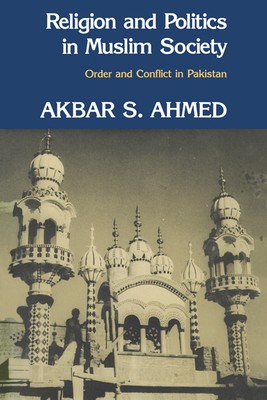
- We will send in 10–14 business days.
- Author: Akbar S Ahmed
- Publisher: Cambridge University Press
- ISBN-10: 0521246350
- ISBN-13: 9780521246354
- Format: 15.2 x 22.9 x 1.8 cm, hardcover
- Language: English
- SAVE -10% with code: EXTRA
Reviews
Description
This analysis of Muslim unrest is based on an extended case study of northwestern Pakistan. Professor Ahmed examines power, authority, and religious status as the critical intermediary level of society: that of the district or Agency, which was the key unit of administration in British India. Amhed has joined his insights as anthropologist with his experience as a political agent in Waziristan to produce an innovative and detailed work. The book focuses on the emergence of a mullah in Waziristan who challenges the state. A religious leader's challenge of the state is not new; but contemporary Muslim society's widespread concern over these conflicts reveals that the influence of religion in a traditional society undergoing modernization is greater than many scholars have assumed. The author identifies three types of leaders: traditional leaders, usually elders; representatives of the established state authority; and religious functionaries. From this analysis he constructs an 'Islamic district paradigm, ' which he uses not only in making sense of contemporary Muslim society, but also in understanding some aspects of the legacy of the colonial encounter
EXTRA 10 % discount with code: EXTRA
The promotion ends in 18d.23:40:27
The discount code is valid when purchasing from 10 €. Discounts do not stack.
- Author: Akbar S Ahmed
- Publisher: Cambridge University Press
- ISBN-10: 0521246350
- ISBN-13: 9780521246354
- Format: 15.2 x 22.9 x 1.8 cm, hardcover
- Language: English English
This analysis of Muslim unrest is based on an extended case study of northwestern Pakistan. Professor Ahmed examines power, authority, and religious status as the critical intermediary level of society: that of the district or Agency, which was the key unit of administration in British India. Amhed has joined his insights as anthropologist with his experience as a political agent in Waziristan to produce an innovative and detailed work. The book focuses on the emergence of a mullah in Waziristan who challenges the state. A religious leader's challenge of the state is not new; but contemporary Muslim society's widespread concern over these conflicts reveals that the influence of religion in a traditional society undergoing modernization is greater than many scholars have assumed. The author identifies three types of leaders: traditional leaders, usually elders; representatives of the established state authority; and religious functionaries. From this analysis he constructs an 'Islamic district paradigm, ' which he uses not only in making sense of contemporary Muslim society, but also in understanding some aspects of the legacy of the colonial encounter


Reviews